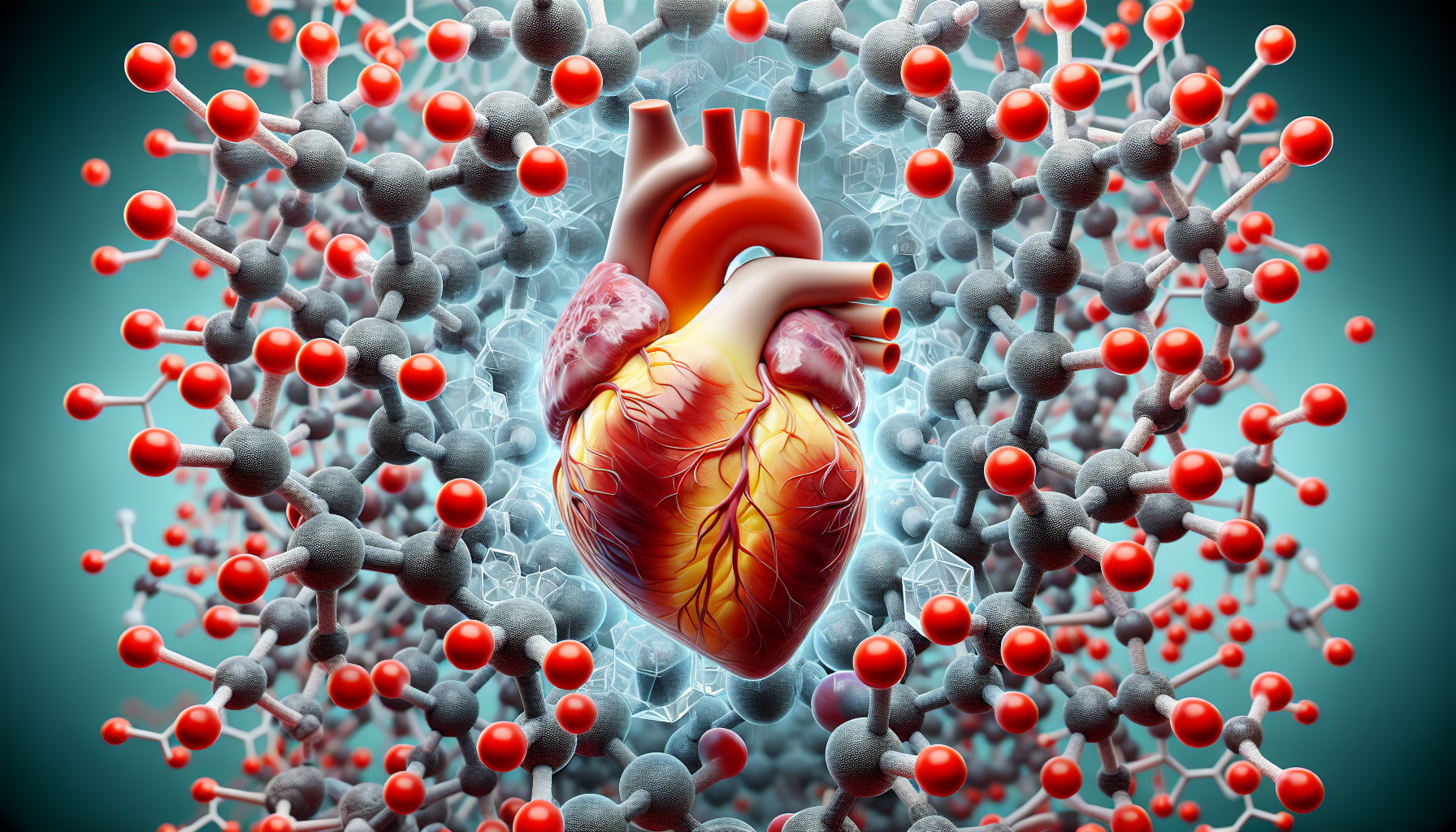Maintaining a healthy heart is paramount to overall well-being, with numerous factors contributing to cardiovascular health. Among these, the role of Coenzyme Q10 (CoQ10) has emerged as a significant element. This naturally occurring substance plays a crucial role in the body’s energy production and functions as an antioxidant. Here, we delve into the intricacies of how CoQ10 influences heart health and the ways individuals can harness its benefits.
Understanding Coenzyme Q10
Coenzyme Q10 is present in every cell of the body, with high concentrations in organs with substantial energy requirements, such as the heart. It is involved in the electron transport chain and aids in the production of adenosine triphosphate (ATP), the energy currency of the cell. As an antioxidant, CoQ10 also protects cells from oxidative stress and damage caused by harmful molecules known as free radicals.
CoQ10 and Cardiovascular Function
The heart, being one of the most energy-demanding organs, relies heavily on CoQ10 for continuous and effective function. Studies have shown that CoQ10 can improve symptoms and reduce the risk of repeat heart attacks in individuals with cardiovascular conditions. It is particularly beneficial in managing heart failure, a condition where the heart struggles to pump blood effectively.
Moreover, CoQ10 may have a positive effect on blood pressure. Hypertension is a significant risk factor for heart disease, and CoQ10 supplements have been observed to help lower blood pressure in some individuals. This effect is thought to be due to the substance’s role in improving endothelial function and reducing oxidative stress.
For those interested in a more in-depth exploration of cardiovascular health and maintenance, Avix Health’s comprehensive guide on Cardiovascular Health offers valuable insights and strategies.
CoQ10 Deficiency and Heart Health
A deficiency in CoQ10 can adversely affect heart health. Certain conditions, such as heart failure and myocardial ischemia, have been associated with reduced levels of CoQ10 in cardiac tissues. Statin medications, commonly prescribed to lower cholesterol, can also decrease CoQ10 levels in the body, potentially leading to muscle pain and weakness, including in the cardiac muscle.
Addressing a CoQ10 deficiency is vital for those with heart conditions. Supplementation can replenish levels and may lead to an improvement in symptoms. It is important to consult with a healthcare provider before starting any new supplement regimen, particularly for individuals on statins or those with existing heart conditions.
Dietary Sources and Supplementation
While the body produces CoQ10 naturally, levels can decline with age or due to certain health conditions. Dietary sources of CoQ10 include organ meats such as liver, fatty fish like salmon and tuna, and whole grains. For many, however, obtaining sufficient CoQ10 from diet alone is challenging, making supplementation a practical consideration.
When choosing a CoQ10 supplement, it is important to look for products that provide the ubiquinol form—the active antioxidant form of CoQ10—for better absorption and efficacy. The appropriate dosage can vary based on individual needs and should be determined in consultation with a healthcare professional.
Research and Perspectives on CoQ10
Research into CoQ10 and heart health is ongoing, with many studies underscoring its potential benefits. For those seeking to delve deeper into the subject, resources like the National Institutes of Health offer peer-reviewed research articles that provide scientific insights into the efficacy of CoQ10 in cardiovascular health maintenance.
CoQ10 in Conjunction with Other Heart Health Strategies
While CoQ10 is influential, it should be part of a broader heart health strategy. This includes regular physical activity, a balanced diet, and managing risk factors such as high cholesterol and hypertension. Avix Health provides resources to assist in these strategies, such as articles on Ways to Reduce Cholesterol Without Medication, which offer practical tips on managing cholesterol levels naturally.
Furthermore, patient education is crucial in managing cardiovascular disease. Understanding one’s condition empowers individuals to take an active role in their health. Avix Health emphasizes this through resources like The Role of Patient Education in Managing Cardiovascular Disease.
Additionally, mental health can significantly affect heart health. The holistic approach to well-being involves addressing psychological factors alongside physical ones. To learn more about this connection, consider reading Linking Mental Health and Heart Health for a Holistic Approach.
Conclusion
Coenzyme Q10 is a vital component in the quest for a healthy heart. Its role in energy production and as an antioxidant makes it an invaluable ally in maintaining cardiovascular health. By understanding CoQ10’s functions, addressing potential deficiencies, and incorporating it into a comprehensive heart health strategy, individuals can take proactive steps towards improving their cardiovascular well-being.
For those who require more individualized guidance or have specific health concerns, consulting with a healthcare provider is crucial. Together with informed lifestyle choices and the support of educational resources, CoQ10 can be an integral part of a heart-healthy life.
In summary, Coenzyme Q10’s relationship with heart health is multifaceted and immensely beneficial. By focusing on a combination of supplementation, diet, and overall health strategies, we can support our cardiovascular system’s function and contribute to our body’s long-term vitality.



